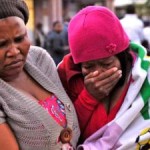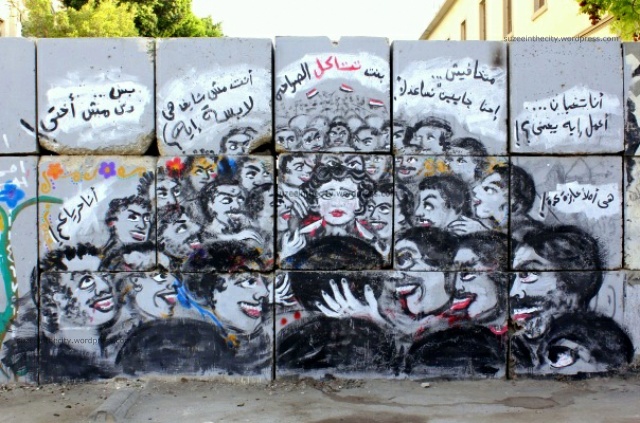In South Africa, August 9 is National Women’s Day, and August is Women’s Month. This August, the Tshwaranang Legal Advocacy Centre, a South African women’s rights and well-being organization has a simple and direct question for everyone, “So just how real are women’s rights?”
They began, publically, to answer that question yesterday, August 11, with a new report, “The Right & The Real: A Shadow Report Analysing Selected Government Departments’ Implementation of the 1998 Domestic Violence Act and 2007 Sexual Offences Act”. On one hand, the answer paints a dismal picture. Only 8% of police stations meet their obligations under the Domestic Violence Act. Compliance would include helping a victim to find shelter and obtain medical assistance, serving notice on an abuser to appear in court, arresting an abuser who breaks a protection order, and, critically, keeping records of domestic violence. Failure to comply means misconduct, and should result in various forms of sanction and punishment. It hasn’t. Police stations ignore their responsibilities with impunity.
In 2007, 57% of police stations were compliant. Now … less than 8%. That’s not a drop, not even a steep drop. That’s a nose dive.
The report focuses on the failure of the South African Police Services and the Department of Justice and Constitutional Development (which includes National Prosecuting Authority), as well as the Departments of Health, Social Development and Correctional Services. The press has covered this failure as a failure to protect women and women’s rights, which it certainly is.
But Tshwaranang’s analysis goes far beyond the failure to protect.
The real of women’s rights is more than, bigger than, and more profound than “protection”. The real of women’s rights is freedom, and specifically the enjoyment of freedom:
“South Africa’s Constitutional Court makes it clear that, `few things can be more important to women than freedom from the threat of sexual violence.’ So important is this right to be free from all forms of violence that, along with the rights to life and dignity, it imposes two sorts of duties on the state: the first obliging the state to refrain from acting in ways that infringe on these rights, and the second compelling it to develop legislation and structures guaranteeing those rights….It is not only sexual violence that constitutes a rights violation of the sort requiring state intervention: `Indeed, the state is under a series of constitutional mandates which include the obligation to deal with domestic violence: to protect both the rights of everyone to enjoy freedom and security of the person and to bodily and psychological integrity, and the right to have their dignity respected and protected, as well as the defensive rights of everyone not to be subjected to torture in any way and not to be treated or punished in a cruel, inhuman or degrading way.”
Imagine a South Africa in which all women are free to move around as they please, dressed as they please. Imagine a world in which all women are free to move around as they please, dressed as they please. Imagine a world in which democracy means the enjoyment of freedom. Instead of celebrating Women’s Day, what about Women’s Enjoyment of Freedom Day?
(Photo credit: Halden Krog / Times Live)






